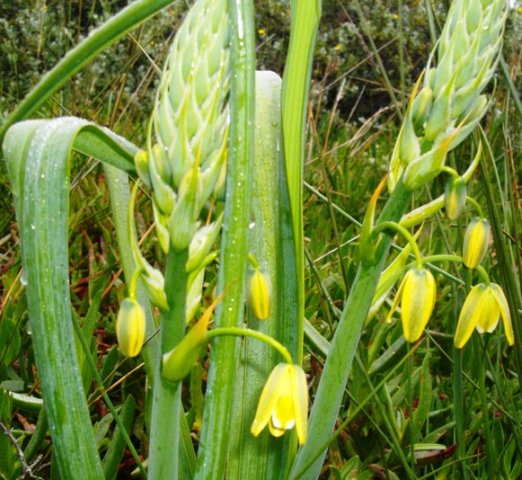Albuca flaccida

Author: Ivan Lätti
Photographer: Ivan Lätti
Albuca flaccida is a bulbous perennial growing flowering stems to heights varying between 40 cm and 1 m. The species is winter growing, summer dormant.
The three to five fleshy channelled leaves are grey-green, long, tapering to their tips and clasping the stem at the base.
The fragrant flowers grow in a raceme on a sturdy, green flower stalk (scape). The pedicels are long, subtended by large, triangular bracts with long, thin, attenuating tips. The buds are erect, the open flowers nod. The tepals are about 2 cm long, sometimes with broad green bands down the centre of their outside surfaces. Each inner tepal, shorter than the outer three, has a hinged flap at its tip and some white colouring. The outer ones flare open while the inner ones remain together.
This species, as do several other Albuca plants, may produce more than one scape per season, as seen here. Flowering happens late winter and early spring. Much wind dispersed seed is produced.
The species distribution is in the southwest of the Western Cape from southern Namaqualand to the Cape Peninsula and east of Bredasdorp.
The habitat is mostly coastal flats and slopes where the soil is sandy. The habitat population is deemed of least concern early in the twenty first century (Manning, 2007; Bean and Johns, 2005; iNaturalist; www.pacificbulbsociety.org; http://redlist.sanbi.org).

